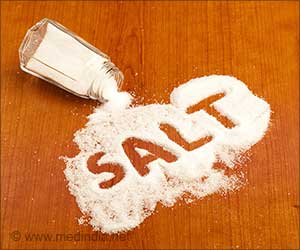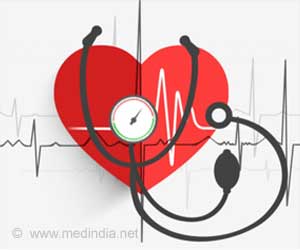Many common diseases exhibit gender bias and gender differences have been observed in the development of high blood pressure and heart disease.
Previous studies have reported that gender may affect vascular physiology and the body’s response to some types of blood pressure medications. Although gender is usually accounted for in association studies, newer research has focused on identifying autosomal (not on the X or Y chromosomes) genes that contribute differentially to complex traits (blood pressure) or diseases (hypertension).In a new study, researchers examined the differential contribution of genetic factors involved in regulating blood pressure based on samples drawn from a large community. They found significant differences in genetic contributors to blood pressure in males versus females.
The study was conducted by Brinda Rana and Nicholas Schork, Department of Psychiatry; Paul Insel, Department of Pharmacology; and Daniel O’Connor, Department of Medicine; University of California, San Diego, La Jolla, CA. It is entitled, “Population Extremes-Based Approach Defines Gender Differences in Adrenergic and Renal Genes Contributing to Blood Pressure.”
The researchers used a study design in which they sampled age-matched Caucasian Americans (611 male and 656 female) within the top and bottom fifth percentile of blood pressure against blood pressure measured in more than 53,000 people during routine health exams in a major health maintenance program in Southern California. This approach provides over 90 percent statistical power to detect genes contributing as little as three percent to blood pressure variation. The research team also scored over 60,000 genotypes at 35 gene locations involved in two major pathways regulating blood pressure, kidney or adrenergic or regulation. The genotyping was confined to the top and bottom fifth percentile participants.
The researchers found significant differences in genetic contributors to blood pressure in males versus females. For example, common genetic variants of the b1-adrenergic and a2A adrenergic receptor genes contributed to blood pressure (BP) variation in females while variants at the b2 adrenergic receptor and angiotensinogen genes contributed to BP variation in males.
The researchers leveraged the power of using the extremes (highs and lows) of a trait (blood pressure) measured in a large community-based population with the strategy of assessing genetic variants of genes involved in two major blood pressure regulation pathways to identify gender differences in genetic contribution to blood pressure. The results reinforce previous observations of the role of gender in cardiovascular traits and imply that the development of genetic diagnostic and therapeutic indices for hypertension must take gender into account to provide an accurate assessment and treatment of hypertension.
Advertisement
SRM/S











